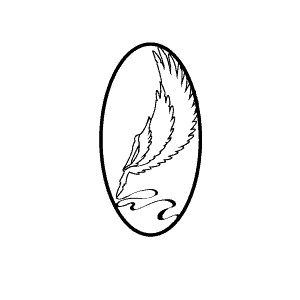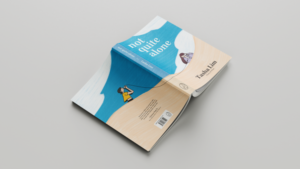Sending your manuscript to publishers is an exciting step in the journey of becoming a published poet. However, it’s crucial to approach this process with care and professionalism. In this guide, we’ll explore the five dos and don’ts to follow when submitting your poetry manuscript to publishers. By adhering to these guidelines, you’ll increase your chances of capturing the attention of publishers who share your passion for poetry.
The Dos!
1. Do your research.
Before submitting your manuscript, take the time to understand each publisher’s guidelines and preferences. Research their focus areas and previous publications. This knowledge will help you target the right publishers and avoid wasting time with those who may not be interested in your style or genre. For example, if a publisher primarily focuses on fiction, poetry, novels, and short stories, it’s best to steer clear if you’re submitting non-fiction, biographies, and children’s books.
2. Follow submission guidelines.
Adhering to submission guidelines is essential. Pay attention to formatting requirements, word count limitations, and submission procedures. Publishers appreciate authors who respect their guidelines, as it shows professionalism and attention to detail. If the guidelines specify a maximum word count of 80,000, resist the temptation to submit a 120,000-word manuscript. Stay within the specified limits to demonstrate your ability to follow instructions.
3. Edit and proofread meticulously.
Make sure your manuscript is polished and error-free before submitting it. Editors and publishers appreciate authors who take the time to edit and proofread their work. Spelling errors, typos, and grammatical mistakes can create a negative impression and distract from your poetic brilliance. Take the extra effort to ensure your manuscript is flawless, allowing your poetry to shine brightly.
4. Include a compelling query letter.
Accompany your manuscript with a concise and engaging query letter. This is your chance to introduce your work and capture the publisher’s interest. Highlight the unique aspects of your poetry collection, emphasising themes, style, and your writing credentials. Craft a compelling pitch that entices the publisher to delve into your manuscript and discover the beauty of your words. Here is a complete guide to writing a query letter to publishers, read here. To know the dos and don’ts of writing a query letter to a publisher, read this from Writer’s Digest.
5. Be patient and professional.
After submitting your manuscript, exercise patience and maintain a professional demeanour. Understand that publishers receive numerous submissions and require time to review each one thoroughly. Avoid sending frequent follow-up emails or displaying impatience in your communication. Remember, patience and professionalism will leave a positive impression and increase your chances of receiving a thoughtful response.
The Don’ts!
1. Don’t submit unfinished or unpolished work.
Publishers expect quality, polished manuscripts. Avoid the temptation to submit a first draft filled with grammatical and spelling errors and low quality writing. Take the time to revise, refine, and perfect your poetry collection. Presenting a refined manuscript showcases your commitment to excellence and increases your chances of acceptance.
2. Don’t oversell or exaggerate your work.
Be truthful and authentic when describing your manuscript’s strengths. Avoid making misleading claims or overselling your poetry collection. Publishers appreciate authors who present their work honestly and accurately. Claiming your book is a bestseller when it hasn’t been published yet can damage your credibility and erode the publisher’s trust.
3. Don’t pester the publisher.
Respect the publisher’s process and timeline. Avoid the urge to pester the publisher with frequent emails, messages, or phone calls inquiring about the status of your submission. If the publisher noted their response time in their guidelines, be aware and have patience. Trust that they will review your manuscript in due time. Displaying patience and respect for their time and workflow enhances your professional image.
4. Don’t take rejection personally.
Rejections are a common part of the publishing process. Instead of dwelling on rejection, view it as an opportunity for growth and improvement. Learn from the feedback provided, make necessary adjustments, and consider submitting your work to other publishers who might better appreciate your unique poetic voice. Perseverance is key in the journey to publication.
Submitting your poetry manuscript to publishers requires attention to detail, professionalism, and passion. By following the dos and avoiding the don’ts, you can present your poetry collection in the best possible light. Remember to conduct thorough research, adhere to submission guidelines, polish your manuscript, craft a compelling query letter, and maintain patience and professionalism throughout the process. Keep pursuing your dreams, and with perseverance, your poetic voice will find its home in the hearts of readers.
To learn thoroughly about getting your works published, you can now purchase Poetry & Short Stories – A Practice Book, which is a short story and poetry activity book written by our best-selling author, Charissa Ong Ty. This practice book will help you realise your writing career by giving you the fundamental lessons to practice and teaching you the process and technical writing methods that you can practice daily!
Read this article to learn about other local Malaysian publishing houses (such as ourselves) that you can try to reach out to here or submit your very own manuscript to us for a review here as the first step to getting your work published! We look forward to reading your submissions.




